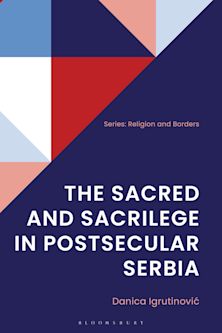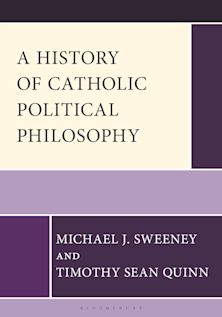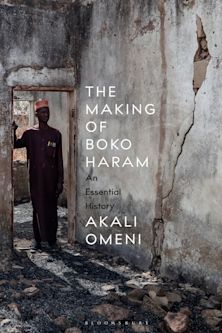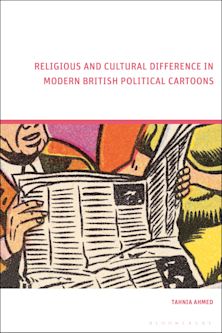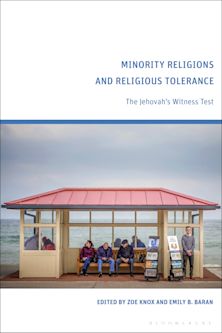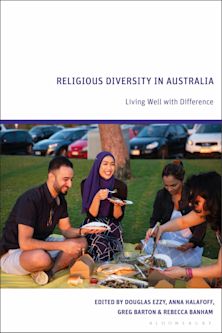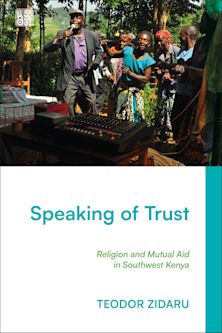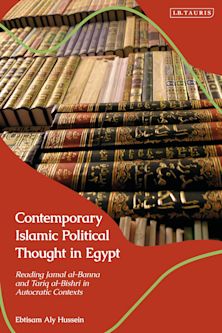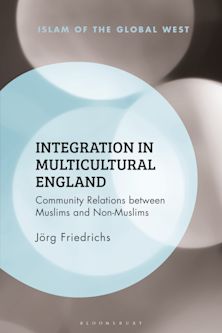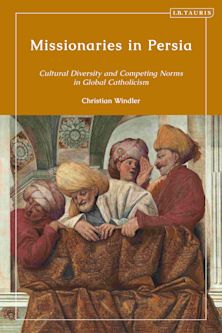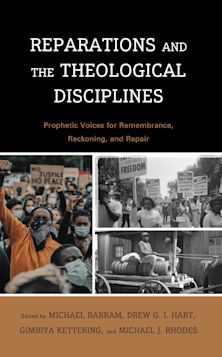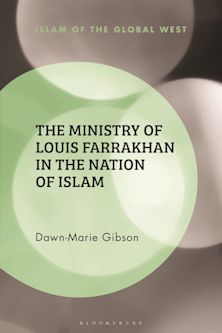- Home
- ACADEMIC
- Religious Studies
- Religion and Politics
- Religion, Politics, and Polarization
Religion, Politics, and Polarization
How Religiopolitical Conflict Is Changing Congress and American Democracy
Religion, Politics, and Polarization
How Religiopolitical Conflict Is Changing Congress and American Democracy
This product is usually dispatched within 2-4 weeks
- Delivery and returns info
-
Flat rate of $10.00 for shipping anywhere in Australia
You must sign in to add this item to your wishlist. Please sign in or create an account
Description
Do the religious affiliations of elected officials shape the way they vote on such key issues as abortion, homosexuality, defense spending, taxes, and welfare spending? In Religion, Politics, and Polarization: How Religiopolitical Conflict is Changing Congress and American Democracy,William D’Antonio, Steven A. Tuch and Josiah R. Baker trace the influence of religion and party in the U.S. Congress over time. For almost four decades these key issues have competed for public attention with health care, war, terrorism, and the growing inequity between the incomes of the middle classes and those of corporate America. The authors examine several contemporary issues and trace the increasing polarization in Congress. They examine whether abortion, defense and welfare spending, and taxes are uniquely polarizing or, rather, models of a more general pattern of increasing ideological division in the U.S. Congress. By examining the impact of religion on these key issues the authors effectively address the question of how the various religious denominations have shaped the House and Senate. Throughout the book they draw on key roll call votes, survey data, and extensive background research to argue that the political ideologies of both parties have become grounded in distinctive religious visions of the good society, in turn influencing the voting patterns of elected officials.
Table of Contents
1: Setting the Stage: Culture Wars, Religion, and Congress
2: Religion in Congress: A Historical Overview
3: Religious Composition of the U.S. House and Senate, 1959–2010
4: Abortion: Exemplar of the Polarized Congress?
5: Defense, Taxes, and Welfare: Key Votes in the House and Senate
6: Does Religion Transcend Social Issue Voting? The Relationship between Religion and Congressional Ideology
Steven A. Tuch and Alyx Mark
7: Toeing the Party Line: The Increasing Influence of Partisanship among White Protestants and White Catholics, 1972–2010
Robert P. Jones and Daniel Cox
8: Discussion and Conclusion
Appendix A
Appendix B
Notes
References
Index
About the Authors
Product details
| Published | 20 Jun 2013 |
|---|---|
| Format | Paperback |
| Edition | 1st |
| Extent | 172 |
| ISBN | 9781442223974 |
| Imprint | Rowman & Littlefield |
| Illustrations | 55 BW Illustrations, 10 Tables |
| Dimensions | 229 x 152 mm |
| Publisher | Bloomsbury Publishing |
About the contributors
Reviews
-
Few social scientists have attempted to measure religion's influence on the U.S. Congress with the level of precision that William D'Antonio, Steven Tuch and Josiah Baker exercise in their fine new study. . . . In the end, the authors can show persuasively that Congress has polarized and that its members' religious affiliations have shifted away from mainline Protestantism and toward Catholicism and conservative Protestantism.
National Catholic Reporter
-
Anyone who has ever been interested in how religious affiliation affects decision-making in Congress will find this book a valuable source of information and insight. The authors focus on the last half century (1960-2010), noting how a changing religious demography has shaped the political culture. . . . This book deserves a very wide audience.
Voice of Reason
-
Readers will get a clear sense of the unique impact of religious affiliations on congressional decision-making in the multivariate regression models.
America: The Jesuit Review of Faith & Culture
-
There is endless discussion of partisan and ideological polarization and a great deal of talk about the role of religion in American politics. But remarkably, there is not nearly enough work on how polarization and the faith-commitments of our citizens interact. Religion, Politics and Polarization fills that void with enormous care, using data in a creative but rigorous way to illuminate two central questions of our time. And it also helps to explain what is going on inside Congress. D'Antonio, Tuch, and Baker have performed a great service and deserve a wide audience.
E. J. Dionne Jr., syndicated columnist and author of Our Divided Political Heart
-
Religion, Politics, and Polarization fills a gaping hole in the burgeoning literature on political polarization. Revisiting questions about culture wars raised two decades ago by James Davison Hunter, the authors demonstrate how the changing religious affiliations of members of Congress and their visions of the good society have contributed to the striking increase in partisan polarization in congressional voting behavior. They also persuasively make the case that the public is as deeply implicated as political elites in this most important transformation in contemporary American politics.
Thomas E. Mann, The Brookings Institution
-
We hear it every day: 'Congress is mired in partisan polarization, gridlocked—dysfunctional.' But how and why? Pundits offer superficial answers, but very few mention religion. This book says otherwise. Using hard data and sound analysis, scholars William D'Antonio, Steven A. Tuch and Josiah R. Baker use 40 years of data to show that 'the political ideologies of both political parties are rooted in religion.' It's a must read for those interested in the future of American politics.
Maureen Fiedler, host of NPR's Interfaith Voices













